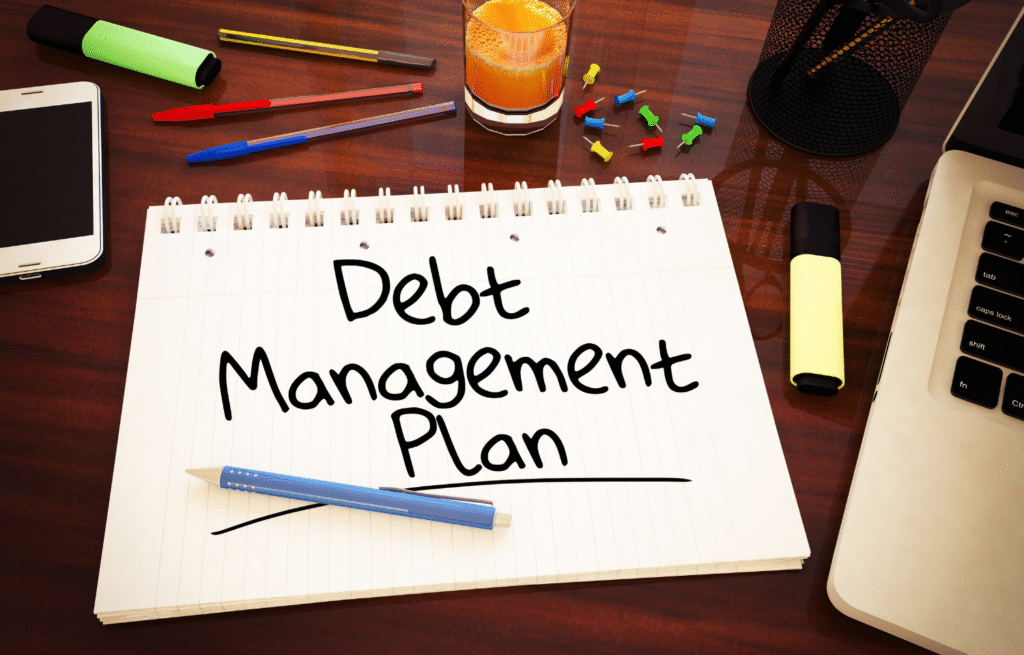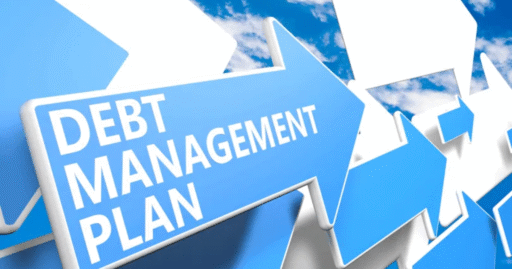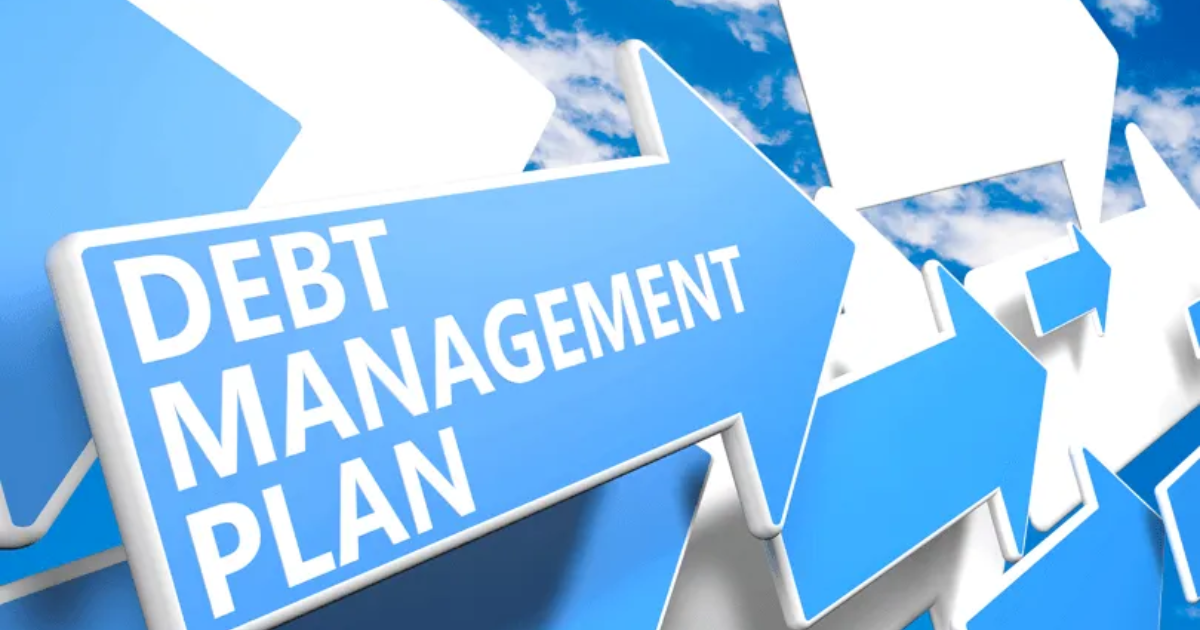Managing debt can feel overwhelming, especially when multiple bills, high-interest rates, and minimum payments are involved. For many individuals struggling with unsecured debt, Debt Management Plans (DMPs) offer a structured path toward financial relief. But how do they work, and are they the right solution for everyone? In this comprehensive guide, we’ll explore what Debt Management Plans are, how they function, their benefits and drawbacks, and how to determine if one is the right fit for your financial situation.
What Is a Debt Management Plan?

A Debt Management Plan is a repayment program designed to help individuals pay off unsecured debts, such as credit card balances or medical bills, through monthly payments managed by a credit counseling agency.
How It Works
You work with a nonprofit credit counseling agency. The counselor contacts your creditors to negotiate lower interest rates or waived fees. You make a single monthly payment to the agency. The agency then distributes those funds to your creditors. Unlike bankruptcy or debt settlement, a DMP does not involve eliminating debt, but rather repaying it under more favorable terms.
Types of Debt Eligible for a DMP
Debt Management Plans are generally limited to unsecured debt, which includes:
Credit Card Debt
This is the most common form of debt included in DMPs. High-interest rates can quickly make credit card debt unmanageable.
Medical Bills
DMPs can include unpaid hospital or doctor bills that are not secured by property.
Personal Loans
Unsecured personal loans may be added to a DMP if the creditor agrees to participate.
Collection Accounts
Debts that have been turned over to collection agencies may also qualify if the agencies agree to the plan.
Note: Secured debts (like mortgages or car loans) and student loans are typically not eligible for DMPs.
Benefits of a Debt Management Plan

1. Simplified Payments
Rather than juggling multiple bills, you make one monthly payment to the credit counseling agency.
2. Lower Interest Rates
Many creditors will reduce your interest rate when you enroll in a DMP, potentially saving you thousands of dollars.
3. Waived Late Fees
Some creditors may agree to eliminate past penalties, making it easier to catch up.
4. Faster Debt Repayment
With reduced interest and more of your payment going toward the principal, you could pay off your debts in 3 to 5 years.
5. No Collection Calls
Once enrolled, creditors often stop collection efforts, giving you peace of mind.
Drawbacks of a Debt Management Plan
Despite the benefits, DMPs are not perfect and may not be suitable for everyone.
1. Requires Discipline
You must make the agreed monthly payment on time every month. Missing a payment could lead to cancellation of the plan.
2. Limited to Participating Creditors
Not all creditors are required to accept the plan, so some debts may not be included.
3. Closed Credit Accounts
Most creditors will require you to close your credit card accounts, which can impact your credit utilization ratio and score.
4. Doesn’t Eliminate Debt
Unlike bankruptcy, you are still paying back 100% of your debt.
5. Monthly Fees
Credit counseling agencies may charge a small monthly maintenance fee, typically around $20 to $50.
Who Should Consider a Debt Management Plan?
A DMP may be a good option if:
You Have Steady Income
Since DMPs require consistent monthly payments, a reliable income is essential.
You’re Struggling With Multiple Debts
If you’re managing several debts with high-interest rates, a DMP can streamline and lower your payments.
You’re Committed to Repaying Your Debt
DMPs are ideal for those who want to repay what they owe without resorting to bankruptcy or debt settlement.
You Need Help Negotiating With Creditors
Credit counseling agencies have established relationships with creditors and can often secure better terms than individuals can on their own.
How to Enroll in a Debt Management Plan

Step 1: Find a Reputable Credit Counseling Agency
Choose an accredited nonprofit agency through the National Foundation for Credit Counseling (NFCC) or the Financial Counseling Association of America (FCAA).
Step 2: Schedule a Free Consultation
You’ll review your income, expenses, and debts with a counselor to determine if a DMP is appropriate.
Step 3: Review the Plan
If eligible, the counselor will present a proposed plan including interest rate reductions, payment terms, and included creditors.
Step 4: Enroll and Begin Payments
Once you agree, your accounts will be consolidated into the plan. You’ll begin making one monthly payment to the agency.
Step 5: Monitor Your Progress
Many agencies provide online portals or monthly statements showing how your debt is being reduced.
Impact of a DMP on Your Credit Score
Initial Effects
When you enroll, your credit score may drop temporarily due to closed accounts and reduced credit utilization.
Long-Term Benefits
Over time, your score can improve as you make regular payments and reduce your overall debt.
Reporting
Participating in a DMP does not directly appear on your credit report, but creditors may note the accounts as “managed by credit counseling.”
Alternatives to Debt Management Plans
If a DMP doesn’t seem right for your situation, consider these alternatives:
1. Debt Consolidation Loan
Combining your debts into one loan with a lower interest rate can simplify payments, but it may require good credit.
2. Debt Settlement
Negotiating to pay less than you owe can reduce debt but harms your credit and may result in tax consequences.
3. Bankruptcy
As a last resort, Chapter 7 or Chapter 13 bankruptcy can discharge or restructure your debt, but it has a significant long-term impact on your credit.
4. DIY Budgeting and Repayment
Using methods like the debt snowball (paying smallest balances first) or debt avalanche (targeting highest interest rates) can help if your debt is manageable.
Also Read : The Rise Of Cryptocurrency: A Modern Investment Opportunity
Conclusion
A Debt Management Plan can be a powerful tool for regaining control over your finances. It simplifies repayment, reduces interest rates, and helps you become debt-free in a structured and disciplined way. However, it’s not a one-size-fits-all solution. Before enrolling, assess your income, your willingness to commit, and whether your creditors are willing to participate. If you are overwhelmed by debt but want to pay it off ethically and sustainably, a DMP may be the right path for you. Working with a reputable credit counseling agency is key to ensuring that you get the help and guidance necessary to succeed.
FAQs: Debt Management Plans
1. Will a Debt Management Plan ruin my credit score?
Initially, your score may drop slightly due to closed accounts. However, as you make consistent payments and reduce your debt, your credit can improve over time.
2. Can I still use my credit cards while on a DMP?
No. Most creditors will require you to close or stop using your credit cards to remain in the program.
3. How long does a DMP last?
Most DMPs last 3 to 5 years, depending on the total amount of debt and your monthly payment.
4. Are all my debts included in a DMP?
Only unsecured debts (like credit cards and medical bills) are eligible. Mortgages, car loans, and student loans are not typically included.
5. What happens if I miss a payment on my DMP?
Missing payments can result in the termination of the plan, and your creditors may revert to previous interest rates or resume collection actions.

